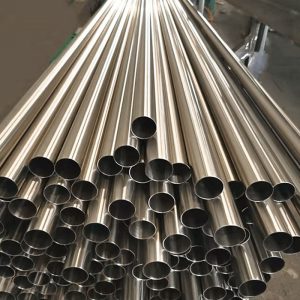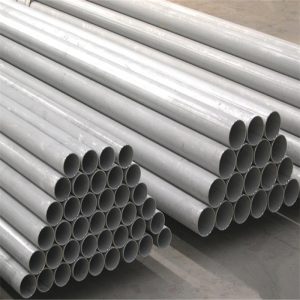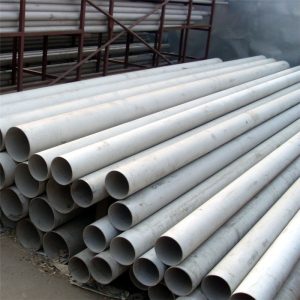What is 304 stainless steel pipe used for?
In the vast landscape of engineering materials, 304 stainless steel pipe stands out as a versatile and reliable choice for numerous applications across various industries. Its exceptional corrosion resistance, strength, and ease of fabrication have made it a staple in countless projects, from household fixtures to large-scale industrial processes.
1) Food and Beverage Industry
One of the primary reasons for the widespread adoption of 304 stainless steel pipe in the food and beverage industry is its exceptional hygiene properties. This grade of stainless steel is non-toxic, non-reactive with most foods, and easy to clean and sanitize. It ensures that the integrity of products remains intact during processing, storage, and transportation. From dairy plants to breweries, 304 stainless steel pipes are crucial components in piping systems that handle liquids and semi-solids, ensuring compliance with stringent food safety regulations.
2) Water Supply and Treatment
In the water industry, 304 stainless steel pipe is a popular choice for potable water distribution systems due to its resistance to corrosion, even in chlorinated environments. This characteristic minimizes the risk of contamination and maintains water quality. Moreover, its durability ensures long-term performance, reducing maintenance costs and the need for frequent replacements. Additionally, stainless steel pipes are often used in water treatment plants, where they withstand harsh chemicals and extreme temperatures during purification processes.
3) Architectural and Construction
The aesthetic appeal and durability of 304 stainless steel pipe make it a favorite among architects and designers. It can be used for both interior and exterior applications, such as handrails, support structures, and decorative elements. Its resistance to rust and corrosion ensures that these structures retain their beauty and functionality over time, even in harsh weather conditions. In addition, stainless steel pipes can be easily customized through polishing, etching, or other surface treatments to enhance their visual appeal.
4) Chemical Processing
The chemical industry relies heavily on 304 stainless steel pipe due to its resistance to a wide range of acids, alkalis, and other corrosive chemicals. This makes it an ideal material for piping systems that transport or store hazardous substances. The durability of 304 stainless steel ensures that the integrity of the piping system is maintained, even under extreme conditions, reducing the risk of leaks or failures.
5) Petroleum and Gas Industry
While 304 stainless steel pipe is not typically used for direct transportation of oil and gas due to cost considerations, it finds application in ancillary systems such as refineries, processing plants, and pipelines carrying non-corrosive fluids. Its resistance to corrosion and high temperatures makes it suitable for use in equipment and piping that handle process fluids and chemicals in these environments.
6) Automotive and Aerospace
The automotive and aerospace industries utilize 304 stainless steel pipe for a variety of components, including exhaust systems, fuel lines, and structural supports. Its strength, corrosion resistance, and ability to withstand extreme temperatures make it an excellent choice for these demanding applications. Additionally, the lightweight nature of stainless steel contributes to the overall weight reduction of vehicles, enhancing fuel efficiency and performance.
7) Conclusion
304 stainless steel pipe is a versatile material with a wide range of applications across various industries. Its exceptional corrosion resistance, strength, and ease of fabrication make it a preferred choice for food and beverage processing, water supply and treatment, architectural and construction projects, chemical processing, as well as automotive and aerospace applications. As technology continues to evolve, the demand for 304 stainless steel pipe is expected to grow, further solidifying its position as a staple in the engineering and construction world.







